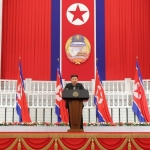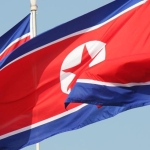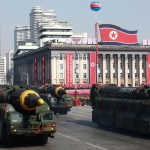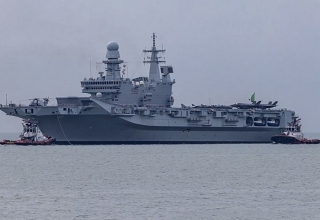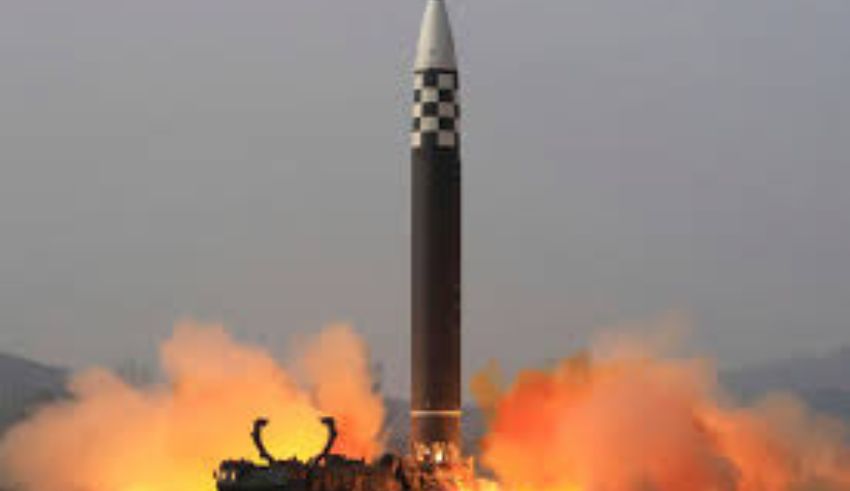
With a record-setting intercontinental ballistic missile (ICBM) test, North Korea boldly claimed it as the “world’s most powerful strategic deterrent.” Launched with Kim Jong Un present, the missile set a new record with an 87-minute flight, the longest known flying period for a North Korean missile. While neighboring countries and the world community responded with quick denunciation, state media in the North praised the achievement as a major improvement of the missile capability of the country.
A Direct Message to “Threatening” Nations
Kim Jong Un’s attendance at the launch underlined its significance for North Korea’s military posture. Kim, according to state media agency KCNA, stressed the test as a severe warning to countries posing what Kim sees as security concerns to North Korea. Kim said, “The test-fire is an appropriate military action that fully meets the purpose of informing the rivals… of our counterattack.” This launch makes a clear statement to nations like the United States, South Korea, and Japan, which have strongly opposed North Korea’s military operations and cautioned of the dangers related to their cooperation with Russia.
The missile launch coincides with a period of increased tension between North Korea and other world nations, especially the United States, Japan, and South Korea. In addition, South Korea issued a warning implying that North Korea’s military advancements could result from Russian technological cooperation, presumably in return for Pyongyang’s recent 11,000 army deployment to Russia to support the Ukraine crisis. Among these personnel, 3,000 are allegedly positioned near the western front lines of Ukraine, raising questions about North Korea’s increasing military support for Russia could lead to reciprocal technological exchanges with Moscow.
Likely Reasons Driving the Missile Test
North Korea’s ICBM test time is calculated strategically. South Korean intelligence observed signs that the North may either conduct a nuclear test to garner attention, maybe around the U.S. presidential election, or launch another ICBM. Military specialist Shin Seung-ki of the Korea Institute for Defense Analyses said that North Korea’s aims might include proving its resistance to Western pressure and using its military actions to influence American foreign policy debates.
Launched on a “lofted trajectory,” North Korea’s ICBM shot into a sharp arc maximizing height and covering less distance. Rising to a height of almost 4,300 miles, this test saw the missile fly around 620 miles before splashing down 125 miles west of Okushiri Island, close to Hokkaido. Such lofted tests assist in determining missile stability and thrust without causing the political ramifications that may follow a long-distance flight across the Pacific.
The last ICBM from North Korea, the Hwasong-18, was tested under similar circumstances in December of last year. Designed for a possible 9,300-mile range, that missile shot from a mobile road launcher using solid-propellant. Its theoretical range allows it to reach anyplace in the continental United States, therefore raising more questions about the developing missile technology of North Korea.
Keep Reading
A Complex Alliance: Rising Cooperation Between Russia and North Korea
Russia’s U.N. Ambassador Vassily Nebenzia responded to criticism of North Korea’s military engagement in Russia by asking why friendly countries, such as North Korea, should not back Moscow if Western allies are providing military aid to Ukraine. This attitude suggests a growing relationship between Russia and North Korea whereby both countries look more willing to support one another militarily in spite of worldwide resistance. However, South Korea cautioned that since Pyongyang hopes to gain technologically from Russia, including in areas such as tactical nuclear weapons and ballistic missile submarines, this relationship might have grave consequences for regional security.
The latest missile test by North Korea raises fresh questions about security and stability in East Asia. Seeking a concerted response, South Korea, Japan, and the United States keep pushing diplomatic actions and sanctions to lower Pyongyang’s military aspirations. Emphasizing the perils of unbridled North Korean aggression and the threats resulting from their increasing alliance with Russia, these countries urge the world community to handle what they view as a destabilizing agent in the area.
North Korea’s strategic missile developments pose a serious threat to the globe since they force diplomatic pressure to be balanced with military readiness to handle growing dangers. This most recent release emphasizes how urgently a coordinated worldwide strategy is needed to reduce the hazards of a territory on the verge of increased violence.
